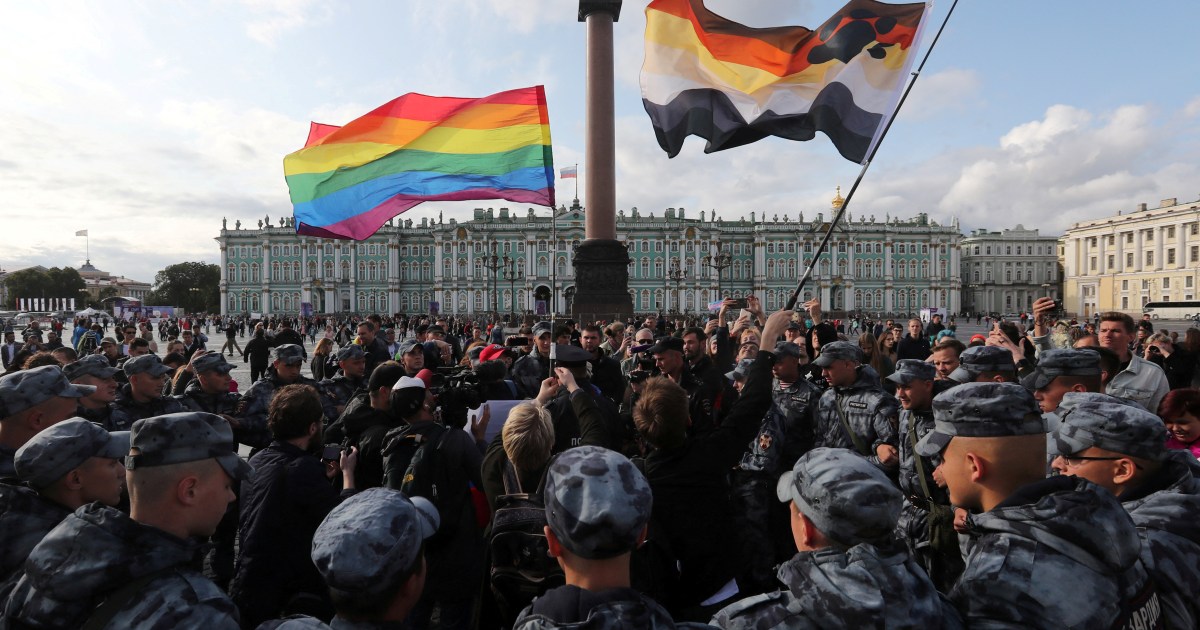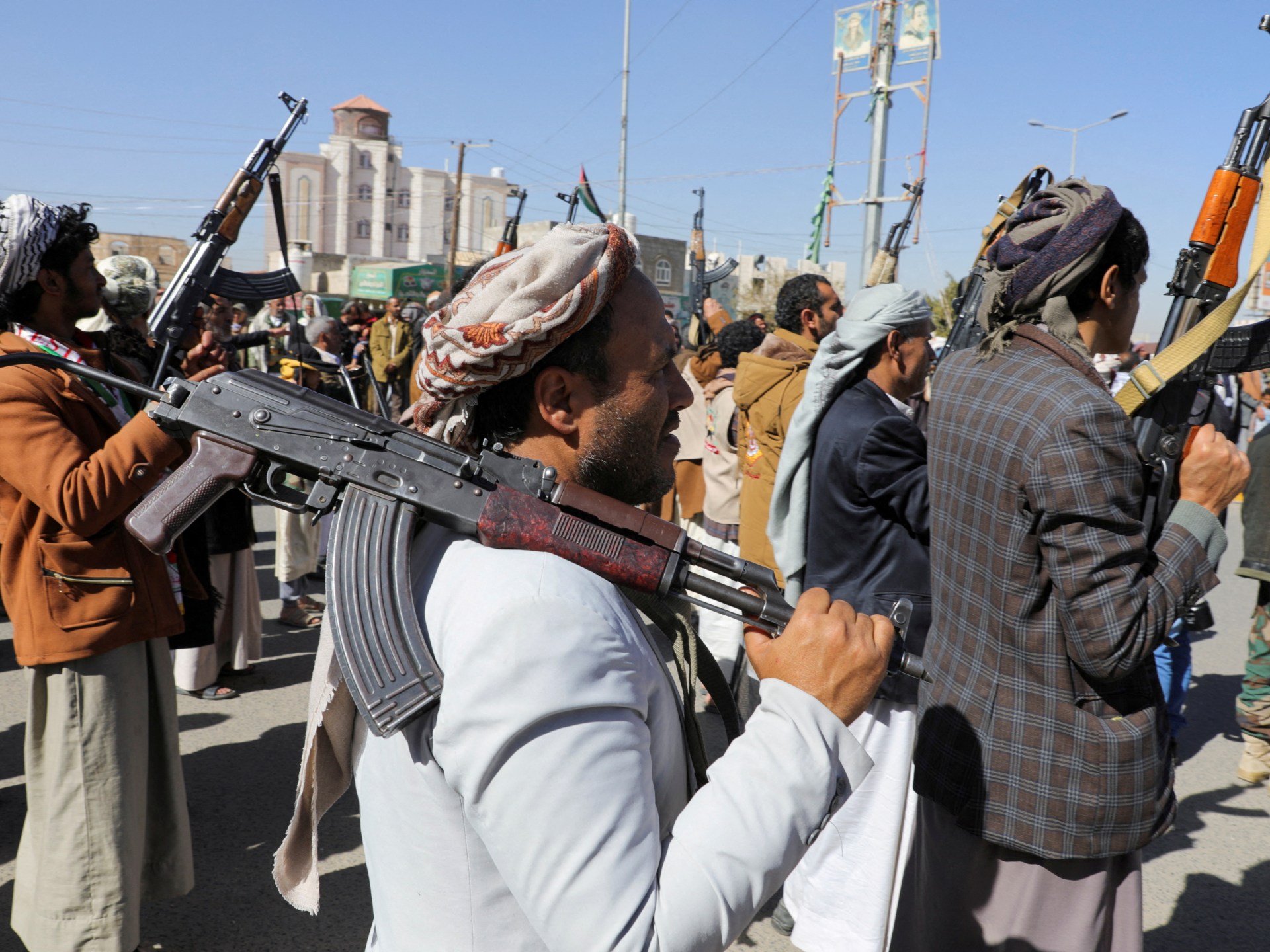Russia proposes extending ‘gay propaganda’ law to all adults
Under proposed changes to law, any event or act regarded as an attempt to promote homosexuality could incur a fine.
Russian lawmakers have proposed extending a ban on the promotion of “non-traditional” sexual relationships among minors to now include adults as well, a senior legislator has said.
Russia’s existing “gay propaganda” law, passed in 2013, has been used to stop gay pride marches and detain LGBTQ rights activists.
Under the proposed changes to the law, any event or act regarded as an attempt to promote homosexuality could incur a fine.
Authorities say they are defending morality in the face of what they argue are un-Russian liberal values promoted by the West. Human rights activists say the law has been broadly applied to intimidate Russia’s LGBTQ community.
“We propose to generally extend the ban on such propaganda regardless of the age of the audience (offline, in the media, on the internet, social networks and online cinemas),” the head of the State Duma’s information committee, Alexander Khinshtein, said on his Telegram social media channel on Monday.
Russia’s parliamentary speaker Vyacheslav Volodin said last week that since Russia had quit the Council of Europe human rights watchdog after invading Ukraine, it would now be able to ban the promotion of “non-traditional values”.
“Demands to legalise same-sex marriages in Russia are a thing of the past,” Volodin said.
“Attempts to impose alien values on our society have failed.”
Homosexuality was a criminal offence in Russia until 1993 and was classed as a mental illness until 1999.
President Vladimir Putin has aligned himself closely with the Orthodox Church – which rejects same-sex relationships – and has made its social conservatism part of a narrative of Russian political and cultural revival that is now also being used to help justify the invasion of Ukraine.
A new constitution enacted in 2020 that extended presidential term limits also defines marriage exclusively as the union of a man and a woman.
In a ranking of Europe’s most LGBTQ-friendly nations in this year’s “Rainbow Europe” index compiled by ILGA-Europe, Russia came third from last.




